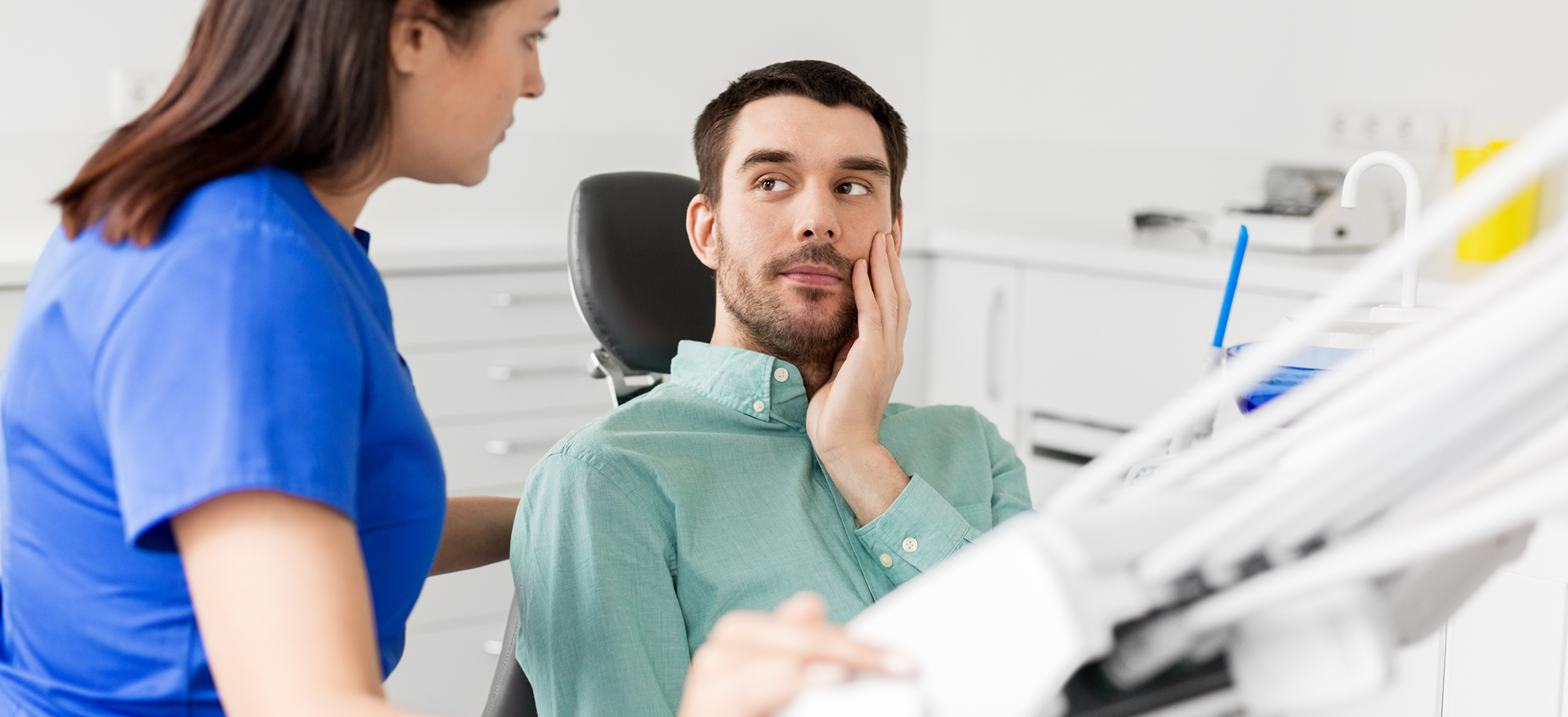Emergency Dentist Cleburne
Expert Dental Care When You Need It the Most
Being prepared can make all the difference when an emergency happens. Do you have a plan in place in case you or a loved one suddenly experience dental pain? Instead of heading to the ER and spending hours in the waiting room, you can get the high-quality care you need right away just by calling Long Family Dental of Cleburne. We always make emergency patients our top priority, and we do everything we can to help someone get out of pain as quickly as possible, including scheduling same-day appointments for emergency dentistry in Cleburne.
Why Choose Long Family Dental of Cleburne for Emergency Dentistry?
- Same-Day Appointments for Patients in Pain
- Team Led by Two Experienced Dentists
- Dental Sedation Available for Your Comfort
I Need a Checkup & Cleaning I Need a Dentist for My Child I Have a Cavity or Broken Tooth I am Missing One or More Teeth I Want to Enhance My Smile I am Worried About Gum Disease I Have Jaw Pain & Headaches I am Scared of the Dentist I Snore/Have Sleep Apnea View Our Services
How We Handle Dental Emergencies

- Call Our Team. The first step you should always take is to schedule an emergency dental appointment by calling our office. In most cases, Dr. Chris and Dr. Bob are able to treat emergencies in-house, minimizing your need for a referral and making us the perfect people to see in your time of need. We’ll provide you with over-the-phone first aid guidance and schedule an appointment for you as well.
- Come in to See Us. When you arrive at our office, our team will quickly take you back to one of our treatment rooms to get you settled in a chair. If necessary, we may also take X-rays. Dr. Chris or Dr. Bob will review your diagnostic images and conduct a thorough examination of your mouth. Based on your emergency dentist’s findings, we’ll create a treatment plan to help repair your smile and get your oral health back on the right track.
-
Get Treated. Our team will go over your treatment plan with you and answer any questions you may have. If we are able to complete it the same day, we will, but in some cases, we may need to schedule out a day or more later, especially if it’s a more extensive procedure. Our front desk staff will also provide you with a detailed cost estimate based on an insurance benefits check so you know how much you can expect to pay out-of-pocket.
Most Common Dental Emergencies
There are as many different types of dental emergencies as there are people, so the best rule-of-thumb to go by is to call us whenever you feel oral or dental pain or out-of-the-ordinary symptoms. Below, we’ve also included some of the most common situations that we treat at our office.
Keys to Preventing Dental Emergencies

While you can't always avoid dental emergencies, you can take steps to reduce your risk of having one. It's just a matter of adopting the right habits in your day-to-day life! Luckily, your emergency dentist in Cleburne is here to share these proper practices with you. Just keep reading to learn about them in detail, thus ensuring your smile stays safe. Alternatively, you can call us to discuss things further over the phone.
Visit Your Dentist Often
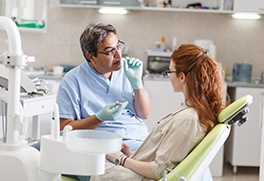
More than anything else, the best way to avoid dental emergencies is to see your dentist often. Frequent visits with them would protect your grin.
Dental checkups are the most effective type of preventive oral care. By detecting and treating your smile’s minor issues, these visits stop the onset of more severe ones. In other words, regular checkups make many dental emergencies – tooth infections, loose teeth, etc. – much less likely.
Maintain Good Oral Hygiene

If you want to prevent dental emergencies, you must maintain good oral hygiene. Doing so puts your smile out of harm’s way.
Indeed, proper oral care can avert many dental dilemmas. Brushing your teeth twice daily can help remove the plaque and bacteria that cause tooth infections. Similarly, once-daily flossing greatly lowers your risk of suffering gum disease or advanced tooth decay. Combining both habits is even better, as they’d act together to make mouth-related emergencies unlikely.
Stick to Mouth-Healthy Meals

You won’t have many (if any) dental emergencies when you follow a mouth-healthy diet. After all, this meal routine is an excellent defense for your smile.
Junk food can cause many oral issues, as you likely already know. Treats packed with sugar and carbs often result in cavities, tooth infections, and worse. At the same time, acidic substances – especially soda – erode enamel and make the underlying dentin sensitive. A mouth-healthy diet consisting of lean proteins, dairy products, and vegetables helps avoid these outcomes.
Wear a Custom Mouthguard
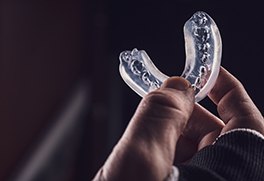
Another fine way to prevent dental emergencies is to wear a mouthguard. By using this device, you can avoid incidents that threaten your oral health.
All things considered, it’s rather easy to injure your mouth. Common contact sports like football and basketball can lead to collisions that knock out teeth. In a similar way, grinding your arches at night will often result in a chipped or cracked tooth. The good news is that a sportsguard can protect your grin from collisions and falls, and a nightguard would prevent you from grinding your teeth.
Use Tools to Open Packages, Not Teeth
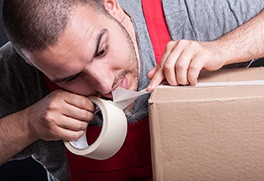
Lastly, you can avoid dental emergencies by not using your teeth to open packages. Using the proper hardware instead is the safer bet.
Using your teeth as tools is simply not good for your enamel. The habit erodes the top layers of your smile, making them more vulnerable to bacteria and debris. To that extent, you should only use your teeth for smiling, speaking, and eating. Their role isn't to open boxes or tear apart packing tape.
Understanding the Cost of Dental Emergencies

There are many different types and severities of dental emergencies, which is why there is not a set price for urgent dental care. Our treatment recommendations will be based solely on what will get a patient out of pain the fastest. Once that is taken care of, we can then try to repair any damage to the teeth. For patients worried about paying for an unexpected expense, our dental office in Cleburne is happy to make things easier by accepting insurance and offering financing options.
Costs Can Vary Based on Your Situation
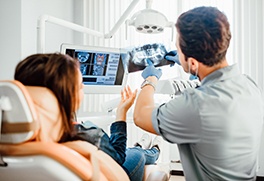
Because no two dental emergency situations are identical, our team at Long Family Dental of Cleburne will need to examine your mouth before we can provide you with a cost estimate for your treatment. We’ll determine the extent of the damage to your tooth or teeth, what treatments will be necessary, and our team will submit a benefits check with your dental insurance plan to see how much of the cost your benefits will cover. All of these details will ultimately determine how much you’ll need to pay out-of-pocket to address your situation.
Does Dental Insurance Cover Emergency Dentistry?

Dental insurance can be a wonderful resource for patients, helping drastically minimize the out-of-pocket cost that you’ll be required to pay for emergency dentistry in Cleburne. We’re proud to offer in-network savings for patients with Aetna, Careington, BlueCross BlueShield of Texas, Guardian, and United Healthcare. However, even if you don’t have any of these PPO plans, we’ll still accept yours and maximize your benefits! Our team will submit claims on your behalf to help reduce the cost of service.
In many cases, dental insurance plans will cover at least a portion of the cost of both the emergency dental examination as well as treatment. However, it’s important to note that every plan’s benefits can vary. Our team will let you know what your out-of-pocket remainder will be before you move forward with treatment.
Other Options for Making Dental Emergencies More Affordable

In addition to being in-network with several major PPO dental insurance plans and being dental insurance-friendly, we also offer an in-house membership plan through Kleer for our uninsured patients. Starting at $28 a month for children and $34 a month for kids, you’ll receive coverage for two professional cleanings and exams a year, X-rays, and an emergency exam, as well as a 15 percent discount on any other procedures you require.
Preventive Dentistry Can Help You Save Money in the Long Run
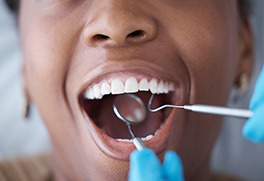
Keeping up with your routine checkups and cleaning every six months can go a long way in helping you save money from dental bills. Not only are these preventive services typically 100 percent covered by dental insurance plans, but they can help prevent the formation of serious dental concerns that require emergency care, like tooth infections and severe decay.
Dental Emergency FAQs
What should I do if my toothache suddenly disappears?
In most situations, pain going away would be a good thing. However, for certain dental issues, like when a toothache suddenly disappears, it could be a sign that the underlying problem is advancing. If you have a toothache for a very brief period of time, say an hour or even a day, that goes away, it’s likely that there’s no serious issue causing your pain. However, if a painful and persistent toothache caused by an underlying infection goes away, it could mean that the issue is spreading. In this case, the best response would be to call your local emergency dentist near you and plan a visit for as soon as possible.
Can the emergency room remove a tooth?
Some patients decide to go to the emergency room instead of an emergency dentist whenever they experience oral pain, but that’s not always the best option. While some emergency rooms have dentists on-call to perform certain procedures like tooth extractions, that’s not always the case. If the emergency room you visit doesn’t have an on-call emergency dentist, you may be faced with two costly bills instead of just one. In short, it’s best to visit a dental office for this treatment instead of your local ER.
Do I need to go to a dentist for a small chip in my tooth?
If you have a minor chip in your tooth, you may not require same-day emergency dentistry. However, it’s still a good idea to get the damage assessed by your dentist to determine if any action is necessary. In some cases, a chipped tooth can lead to sensitivity or increase your chances of developing a tooth infection. Something as simple as a dental crown or dental bonding could keep that from happening, which is the least costly option in the long run!
How long does a tooth last after it has been knocked out of your mouth?
Teeth are a living part of your body, with tissue and nerves that need to be preserved if a tooth gets knocked out. That’s why time is of the essence in this situation. Your tooth will begin to die about 15 minutes after the incident, so it’s important to do what you can to preserve it. This often looks like rinsing it off (be sure to not handle it by the roots) and storing it in a sealed container of milk or salt water. Try to get to your dental office within an hour for a better chance at re-planting it in its socket.
What’s causing my jaw pain?
Jaw pain can be caused by a past injury, teeth grinding, or a condition known as TMJ disorder. If your discomfort is chronic and disrupting your life, see an emergency dentist in Cleburne to learn more about your treatment options.

